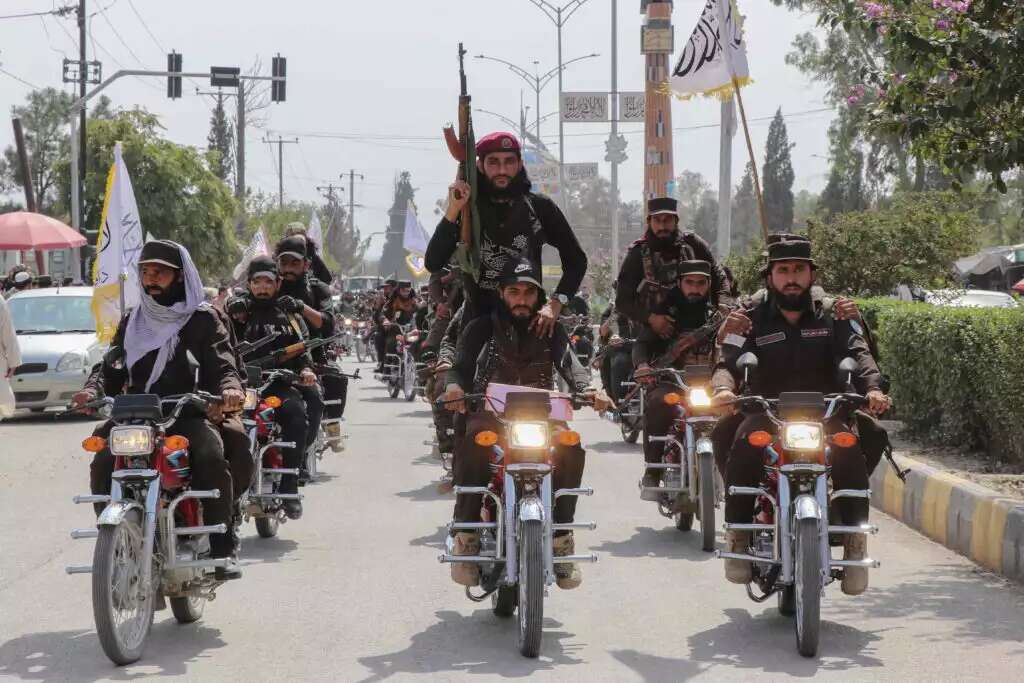Amid the myriad conflicts gripping the world today, one struggle remains underreported, yet deserves significant attention. It could destabilize an already fragile region. Afghanistan, led by the Taliban, and Pakistan appear to be heading towards war, highlighting the dangers of supporting erratic, unpredictable elements.
Just a week ago, at least 46 people were killed and six injured in Pakistan's airstrikes in Afghanistan's eastern Paktika Province. The Taliban government condemned the attack, claiming most victims were refugees from Waziristan, and vowed retaliation. Meanwhile, Pakistani security officials, speaking anonymously to the AP, said the operation aimed to dismantle a training facility and eliminate insurgents in the area.
For those unfamiliar with the shared history of Afghanistan and Pakistan, the recent attack might seem like an isolated security incident. However, the reality is far more complex. The tensions between these two nations have deep historical roots, and the current escalation is merely the surface of a long-standing rivalry divided by a contentious border.
"To understand the roots of the conflict, we must start with geography—the foundation of everything," wrote geopolitical expert Eyal Hashkes in a post on X (formerly Twitter). "Afghanistan and Pakistan share a massive 2,640-kilometer border. This mountainous area is home to many tribes, making it difficult for any state authority to exert control. On the Pakistani side, the tribes have partial autonomy under what is called the 'Federally Administered Tribal Areas.'"
On the Afghan side, understanding the Taliban and their power is crucial. The Taliban emerged in 1994 when a group of clerics and students from Islamic schools (madrassas) exploited Afghanistan's chaos to organize. By 1996, they had seized control of most of the country.
"The Taliban's rise was built on Islamic, nationalist, and tribal sentiments prevalent in Afghanistan," Hashkes explains. "But it's doubtful they could have succeeded without Pakistan's active support." From its inception, Pakistan provided the Taliban with extensive aid, including weapons, funding, and recruits. The goal? "Pakistan aimed to weaken Afghanistan's stability so it would not pose a threat."

In simpler terms, a strong and stable Afghanistan posed a strategic risk for Pakistan, as it could ally with Pakistan's archrival, India, to the south. Supporting the Taliban seemed like a way to undermine Afghanistan. Historically, however, this strategy backfired. Strengthening the Taliban inadvertently empowered an organization that would eventually become a direct adversary.
Before returning to the present, one pivotal moment must be revisited: following the 9/11 attacks in 2001 and the Taliban's harboring of al-Qaida, the US intervened in Afghanistan. It supported the Northern Alliance, a coalition of anti-Taliban militias, to oust the Taliban. For the next two decades, efforts were made to establish a Taliban-free Afghan state and military.
"Even during those years, Pakistan provided refuge to the defeated Taliban," Hashkes notes. "One of the most crucial factors aiding insurgencies is safe haven, and indeed, the Taliban gradually regained strength, retaking Afghan territories. The US withdrawal in 2021 allowed the Taliban to easily overrun the rest of Afghanistan and establish one of the world's most extreme Islamist regimes."

If you thought today's Taliban is the same group from the 1990s, think again. "This is the Pakistani Taliban—a network of Islamist militias with no organizational ties to the Afghan Taliban," Hashkes clarifies. "While the Afghan Taliban focused on ruling Afghanistan, the Pakistani Taliban seeks to overthrow Pakistan's government and establish an extremist Islamic regime."
Since the Afghan Taliban regained control of Afghanistan in 2021, they have failed to curb the Pakistani Taliban's activities as Pakistan had hoped. On the contrary, they are likely supplying weapons left behind after the US withdrawal. As a result, Pakistan has endured a surge in terror attacks by the Pakistani Taliban, alongside a Baluchi minority uprising and a severe economic crisis.
"This is a supreme irony," Hashkes remarks in his post. "Pakistan gave the Afghan Taliban sanctuary to regain strength and reclaim Afghan territories—now the Afghan Taliban provides sanctuary to Pakistan's enemy, the Pakistani Taliban." Over the past 10 months alone, more than 1,500 people have died in terror attacks in Pakistan.

The escalating tensions prompted Pakistan to take drastic action: the 4 million Afghan refugees who fled decades of war—from the 1979 Soviet invasion to the Taliban's resurgence—were ordered to leave. Over 700,000 undocumented Afghan refugees have already been expelled.
"Pakistan extended registered refugees' permits by a year," Hashkes explains, "but the handling of undocumented refugees has created one of the world's worst humanitarian crises. This issue has worsened the nations' tensions and now escalated into direct combat."
While the fighting is far from Israel's borders, its repercussions could ripple beyond Central Asia to the Middle East.
"I'll end with a quote to British media from a senior Taliban figure that encapsulates the mindset," Hashkes concludes in his post. "'We don't care if Pakistan has nuclear weapons—we have faith, and Allah is on our side.' This is likely not the outcome Pakistan envisioned when it elevated the Taliban."




